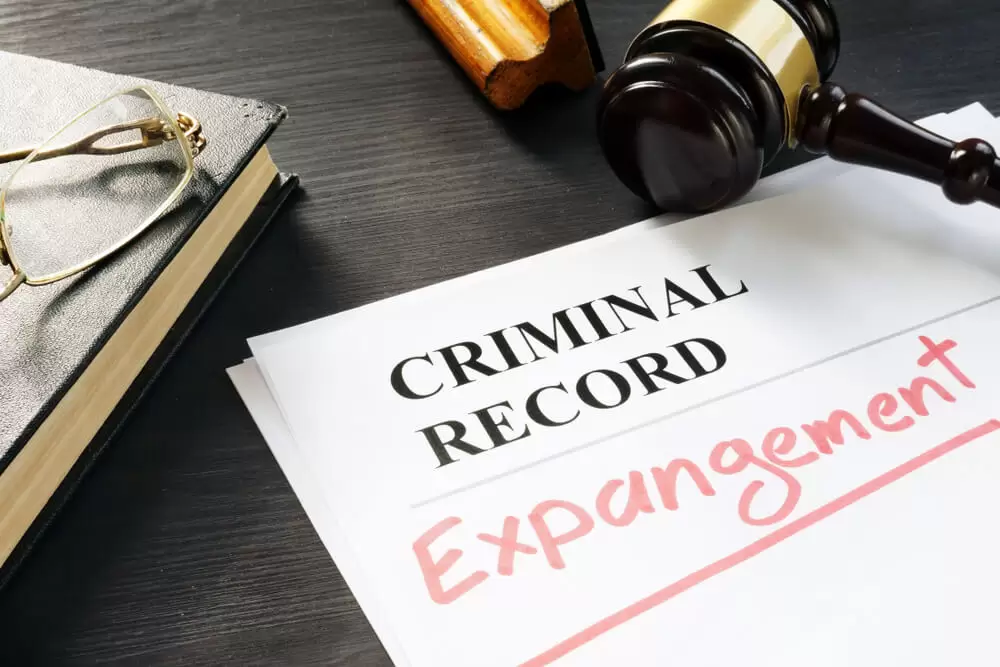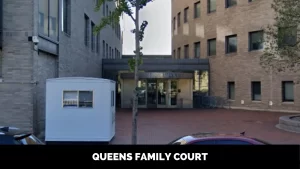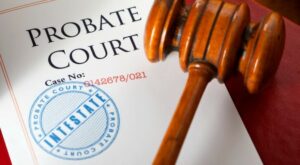Can Expunged Records Be Used Against You In Family Court?
Having a criminal record can complicate many aspects of life, including family court proceedings like divorce and child custody disputes. Expungement is the process of sealing criminal records from public view and, in some cases, destroying the records altogether. An expungement order can provide a clean slate by removing convictions from a person’s record. But can expunged records still be used against you in family court?
What Is Expungement?
Expungement is a legal procedure that removes convictions from a person’s criminal record. It seals the record from general public view and allows the former offender to legally deny the expunged conviction ever happened.
An expungement order directs the court to destroy or seal any records related to the expunged conviction. This may include arrest records, court records, mugshots, fingerprints, and DNA profiles. Once expunged, the conviction is considered nullified.
Benefits Of Expungement
There are many benefits to having your record expunged, including:
- Increased employment opportunities – Many employers conduct background checks and seeing a conviction may disqualify applicants. Expungement allows you to pass these checks.
- Ability to deny the conviction – Except in specific legal situations, someone whose record was expunged can legally deny the conviction occurred.
- Restoration of rights – An expungement may allow you to regain rights lost with the conviction, like voting, gun ownership, and professional licenses.
- Improved access to housing – Landlords often check applicants for criminal histories, but an expungement removes convictions from reports.
- Eligibility for student loans – Having drug convictions can disqualify applicants for student aid, but expungement may restore eligibility.
Limitations of Expungement
While expungement offers many advantages, there are some limitations:
- Not a true erasure – Expunged records still exist in archived court documents and law enforcement databases. The records become inaccessible to the public but are not destroyed.
- Ineligible charges – More serious crimes like violent felonies, sex offenses, and DUIs often cannot be expunged. Laws vary by state.
- Government agencies may still see records – While expunged records are hidden from the public, certain agencies like law enforcement can still access them.
- Private background checks may show records – Some private companies compile their own databases, which may still show expunged convictions.
- Does not erase civil judgments – Expungement only deals with criminal records. Any civil judgments related to the conviction are unaffected.
Expungement Laws Vary By State
Each state has its own unique expungement laws dictating:
- Qualifying crimes – Which types of crimes are eligible, from felonies to misdemeanors.
- Waiting periods – How long you must wait after conviction to apply for expungement, often 1-5 years.
- Process – The steps to petition the court, which may require a hearing.
- Fees – Amount it costs to file for and obtain an expungement order.
- Juvenile records – Rules for expunging juvenile criminal records, which often differ.
- Effect – Whether expunged records are sealed, destroyed, or treated otherwise.
It’s crucial to check your state laws before pursuing an expungement.
Using Expunged Convictions In Family Court
Family court proceedings aim to protect the best interests of any children involved. Judges consider factors like parenting skills, stability, and the potential for substance abuse or violence in making rulings on:
- Child custody
- Visitation rights
- Dividing assets in a divorce
- Payment or denial of spousal/child support
Past criminal convictions, even expunged ones, can be relevant in evaluating such factors. But can an opposing side use your expunged records against you in family court?
Disclosure Of Expunged Records In Family Court
Most states do not permit the open use of expunged criminal records in family court proceedings. However, there are exceptions where the court may allow restricted use or disclosure. Examples include:
- Directly questioning a party – A judge may directly ask an individual about an expunged conviction in some circumstances.
- Sealed court documents – A judge can review sealed records related to an expunged conviction in making determinations about the child’s best interest.
- Protective orders – Evidence of past domestic violence, even if expunged, may be used when considering imposing a protective order.
- Government agencies – Courts may request criminal background checks from law enforcement that include expunged records.
- Juvenile records – Many states treat juvenile expungements differently, allowing their limited use in family court.
When Expunged Records Are Fair Game
While family courts aim to limit the use of expunged criminal records, there are certain situations where they may be admissible:
1. Impeaching Credibility
If a party in the case denies an expunged conviction under oath, the opposing side may use official documentation to challenge their credibility. Perjury in family court can seriously damage your case.
2. Witness Testimony
Witnesses who knew about an expunged conviction, like alleged victims, may testify about their knowledge if the court deems it relevant.
3. Domestic Violence Protection
As mentioned, courts often make exceptions to consider past domestic violence convictions when ruling on restraining orders, even if expunged. The goal is preventing further abuse.
4. Significant Risk of Harm
If the judge believes an expunged conviction presents a significant risk of harm to a child’s well-being, they may factor it into custody decisions.
5. Best Interest of the Child
Above all, the court’s main concern is protecting children. If evidence of past character, fitness, and conduct in an expunged record is deemed crucial to serve the child’s best interest, it may be considered.
Fighting The Use Of Expunged Records
If an opponent introduces formerly expunged records in your family court case, all is not necessarily lost. There are ways to fight back:
- File a motion objecting – Formalize your objections on the record requesting the expunged evidence be excluded or redacted from court documents.
- Challenge the validity – Contest the accuracy and relevance of the records, especially if from an unofficial source.
- Dispute the prejudice – Argue the expunged conviction does not reasonably demonstrate future risk or harm. Emphasize reform since then.
- Seek protective orders – Request orders limiting disclosure or use of the records to maintain as much confidentiality as possible.
- Appeal the decision – If the court improperly uses expunged records against you, appeal the ruling to a higher court.
- Consult an attorney – Discuss options with a family lawyer experienced in dealing with expunged records and privacy rights.
With the right legal advocacy, even the limited use of expunged records can be fought in family court.
Protecting Your Rights
Individuals with expunged convictions still face bias in family court at times. Effective strategies for asserting your rights include:
- Say nothing – Only acknowledge expunged convictions if the court forces you to. Otherwise remain silent and ask for your attorney if questioned.
- Come clean strategically – If the conviction likely will come to light, disclosing it early yourself can diffuse the impact compared to opponents revealing it unexpectedly later.
- Know the laws – Understand exactly what uses and disclosures of expunged records are permitted or prohibited in your state.
- Clean up your life – Making positive life changes since the expunged conviction can help minimize its weight. Show how the past conviction does not define who you are now as a parent or partner.
- Stay calm – Keep composure and dignity if former convictions come up in court. Emotional reactions may only make the records seem more relevant.
- Fight stereotypes – Challenge assumptions that an expunged record means you are inherently risky or unfit as a parent. Overcome stigmas through your present conduct.
Consult A Lawyer
- The complex laws around use of expunged criminal records in family court means consulting an attorney is critical. A lawyer can advise you on:
- State laws and procedures for possible disclosure.
- Strategies to suppress protected records.
- Building the strongest case despite past convictions.
- Options for challenging unfair use of sealed records.
Avoiding use of expunged records altogether may not be possible. But with expert legal help, they don’t have to be barriers to protecting your rights and interests in family court.
Conclusion
Expunged criminal records offer a valuable clean slate and a chance to move forward in life following old convictions. However, privacy rights over sealed records can still be limited in family law cases like divorce and child custody disputes. While family courts aim to exclude expunged records, exceptions may allow their restricted use and disclosure when deemed relevant to protecting children involved. Understanding state laws around when former convictions can be raised and working with an experienced attorney provides the best defense against potential bias. In the end, showing your present-day character as a caring, responsible parent or partner is the most impactful way to rise above your past records.
FAQs:
Q: How can I find out if my expunged record was accessed or disclosed in my family court case?
A: Request copies of all court documents and notes to see if any reference expunged records. You may also retain a lawyer to petition the court to disclose what sealed records were obtained and accessed.
Q: Is it illegal for my ex-spouse or former partner to get copies of my expunged records to use against me?
A: Generally yes, it would be illegal for them to improperly access your sealed records, such as by hiring a private investigator. Consult with an attorney about options to prevent this or pursue legal action if it occurs.
Q: Do I have to disclose an expunged conviction if asked as part of a background check for child adoption?
A: It depends on the laws of your state, since they vary on adoption background checks. Certain agencies may still access expunged records, so it’s best to consult your lawyer before answering such inquiries.
Q: Can I be denied joint or sole custody of my child because of an expunged drug conviction from years ago?
A: The court is supposed to make custody decisions based on present parenting ability. But some judges may still consider a prior drug conviction, even expunged, as grounds for denying custody. An attorney can help argue against this bias.
Q: What should I do if questioned under oath about an expunged conviction in my family court case?
A: Politely decline to answer citing your 5th Amendment rights against self-incrimination since the conviction was officially expunged. Be sure to have your lawyer present to advise you on properly asserting your rights.







